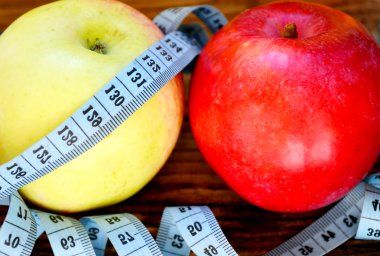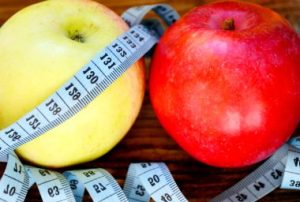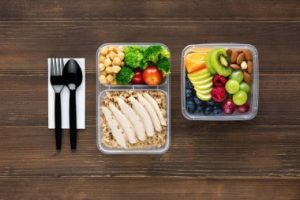
How To Lose Weight Without Exercise (8 Helpful Guidelines)
How to lose weight without exercise: Focus on mindful eating habits, portion control, and making healthier food choices to create a sustainable and effective weight loss journey. In a world where the pursuit of a healthier lifestyle often seems synonymous with grueling gym sessions and intense workouts, the idea of shedding unwanted pounds without breaking a sweat might sound like an elusive dream.
However, what if told you that the journey to weight loss doesn’t necessarily have to be paved with endless hours on the treadmill or relentless weightlifting? Brace yourself for a refreshing revelation as embark on a transformative exploration of unconventional yet effective ways to lose weight without stepping foot into a gym.
Get ready to redefine your approach to wellness, where simplicity and sustainable habits become the keys to unlocking a lighter, healthier version of yourself – no dumbbells required. Welcome to a journey where the scale tips in your favor without breaking a sweat.

How To Lose Weight Without Exercise
To lose weight without exercise, prioritize a balanced and calorie-controlled diet, emphasizing whole foods, proper hydration, and mindful eating habits.
Mindful Eating
Achieving weight loss without exercise starts with mindful eating. Listen to your body’s hunger cues and savor each bite. Avoid distractions like phones and TVs during meals to foster a stronger connection between your mind and the food on your plate. By eating consciously, you reduce the likelihood of overeating and promote a healthier relationship with food.
Portion Control
Mastering portion control is key to weight management. Use smaller plates to create the illusion of a fuller plate, and pay attention to serving sizes. This helps regulate calorie intake and prevents mindless overeating. Consider using measuring tools until you develop an intuitive sense of appropriate portions. Being mindful of your portion sizes is a powerful tool for weight loss.
Choose Nutrient-Dense Foods
Opt for nutrient-dense foods that provide essential vitamins and minerals without excess calories. Incorporate colorful fruits and vegetables into your diet, along with lean proteins and whole grains. These foods not only support weight loss but also enhance overall health. Make informed choices to nourish your body and fuel your weight loss journey.
Hydration Matters
Stay hydrated throughout the day, as thirst can often be mistaken for hunger. Drinking water before meals can help control appetite and prevent overeating. Replace sugary drinks with water or herbal teas to reduce calorie intake. Proper hydration supports metabolism and aids in digestion, contributing to a more effective weight loss strategy.
Quality Sleep
Quality sleep is a crucial factor in weight management. Lack of sleep can disrupt hormonal balance, leading to increased cravings and a slower metabolism. Aim for 7-9 hours of uninterrupted sleep each night to support your weight loss goals. Prioritize a consistent sleep schedule and create a conducive sleep environment for optimal results.
Dietary Modifications
Caloric Deficit
Understanding Basal Metabolic Rate (BMR)
Achieving a caloric deficit begins with comprehending your Basal Metabolic Rate (BMR), the calories your body needs at rest. Calculate your BMR using online tools or consult a nutritionist for precision. Optimize weight loss by consuming fewer calories than your BMR, a fundamental principle for effective dieting.
Tracking Daily Caloric Intake
In the journey of losing weight without exercise, tracking your daily caloric intake becomes a pivotal tool. By maintaining awareness of the calories consumed, individuals can make informed choices about their dietary habits. Utilizing food journals, mobile apps, or online trackers can assist in monitoring and managing calorie intake effectively.
The key is to strike a balance, focusing on nutrient-dense, whole foods while maintaining portion control. This approach empowers individuals to make mindful decisions, fostering a sustainable and realistic path to weight management without the reliance on physical exercise. Tracking daily caloric intake provides valuable insights, enabling individuals to create a tailored and effective nutrition plan that aligns with their weight loss goals.
Portion Control
Using Smaller Plates
Employing smaller plates is a visual cue that aids portion control. This simple yet effective strategy helps prevent overeating by creating the perception of a full plate, promoting mindful consumption without the need for restrictive diets.
Mindful Eating Techniques
Incorporate mindful eating techniques by savoring each bite, eating without distractions, and recognizing hunger and fullness cues. This approach fosters a healthier relationship with food, making it easier to maintain portion control effortlessly.
Nutrient-Dense Foods
Incorporating Fruits and Vegetables
Boost your nutrient intake by incorporating a variety of colorful fruits and vegetables into your diet. These nutrient-dense foods are rich in vitamins, minerals, and antioxidants, supporting overall health while helping you stay within your caloric deficit.
Choosing Lean Proteins
In the pursuit of weight loss without exercise, choosing lean proteins plays a crucial role in achieving a balanced and effective dietary strategy. Opting for lean protein sources such as skinless poultry, fish, lean cuts of meat, tofu, and legumes can aid in building and repairing muscles while keeping calorie intake in check.
These protein-rich options not only contribute to a feeling of fullness but also help maintain a healthy metabolism. By incorporating lean proteins into your meals, you can support your weight loss journey without relying on exercise, fostering a sustainable and nutritious approach to achieving your health goals.
Opting for Whole Grains
Opting for whole grains is a key component of a weight loss strategy without relying on exercise. Whole grains, such as brown rice, quinoa, and whole wheat, offer numerous health benefits, including increased fiber content that promotes a feeling of fullness and helps control appetite.
These nutrient-rich grains also provide essential vitamins, minerals, and antioxidants, supporting overall well-being. By incorporating whole grains into your diet, you can stabilize blood sugar levels, reduce cravings, and create a sustainable approach to weight management. Choose whole grains over refined options to enhance satiety, boost metabolism, and achieve effective weight loss without the need for physical exercise.

Hydration
Drinking Water Before Meals
An often overlooked but powerful strategy in the journey of weight loss without exercise is the simple act of drinking water before meals. Consuming a glass of water before sitting down to eat not only promotes hydration but also serves as an effective tool for weight management. Water helps create a feeling of fullness, reducing the likelihood of overeating during meals.
Additionally, it aids digestion and metabolism, contributing to better nutrient absorption. By incorporating this easy and accessible habit into your routine, you can support your weight loss efforts and foster a healthier relationship with food without the need for strenuous exercise.
Avoiding Sugary Beverages
In the pursuit of weight loss without exercise, one key strategy is to eliminate sugary beverages from your daily routine. Beverages laden with added sugars, such as sodas, energy drinks, and sugary coffees, can contribute significantly to excess calorie intake without providing substantial nutritional value.
By opting for water, herbal teas, or other low-calorie, sugar-free alternatives, you not only reduce your overall calorie consumption but also foster better hydration and support your body’s natural metabolic processes. Making a conscious effort to avoid sugary beverages is a simple yet impactful step toward achieving weight loss goals without the need for physical activity.

Meal Planning and Timing
Regular, Balanced Meals
Importance of Breakfast
In the pursuit of weight loss without exercise, the importance of breakfast cannot be overstated. Consuming a nutritious breakfast kickstarts your metabolism, providing the necessary energy for the day ahead and preventing overeating later on. By fueling your body in the morning, you stabilize blood sugar levels and reduce the likelihood of unhealthy snacking throughout the day.
Opt for a balanced breakfast rich in protein, fiber, and healthy fats to keep you satisfied and curb cravings. Skipping breakfast may lead to increased hunger, poor food choices, and a slower metabolism, hindering your weight loss efforts. Making breakfast a non-negotiable part of your daily routine is a simple yet impactful step towards achieving weight loss goals without relying on exercise.
Incorporating Snacks
Incorporating snacks strategically can be a key component of a successful weight loss journey without relying on exercise. Opt for nutrient-dense snacks like fresh fruits, vegetables, or a handful of nuts to curb hunger between meals. Emphasize portion control to maintain a calorie deficit, and choose snacks rich in fiber and protein to promote a feeling of fullness.
Avoid sugary and processed snacks, opting instead for wholesome options that contribute to overall well-being. By carefully selecting and enjoying snacks mindfully, you can strike a balance that supports weight loss goals while keeping energy levels stable throughout the day.
Intermittent Fasting
Various Methods and Schedules
Intermittent fasting has emerged as a popular approach in the realm of weight loss without relying on exercise. This dietary strategy involves alternating periods of eating and fasting, and it comes with various methods and schedules. The 16/8 method, for instance, restricts daily eating to an 8-hour window, followed by a 16-hour fasting period.
Another approach is the 5:2 method, where individuals consume a regular diet for five days a week and significantly reduce calorie intake on the remaining two non-consecutive days. Alternatively, the eat-stop-eat method suggests a complete 24-hour fast once or twice a week. Intermittent fasting not only helps control calorie intake but also promotes metabolic flexibility and fat utilization during fasting periods, contributing to weight loss without the necessity of a structured exercise routine. As with any dietary changes, consulting with a healthcare professional is advisable to ensure suitability for individual health goals.

Potential Benefits and Risks
Intermittent fasting is a popular approach within the realm of weight loss without exercise, offering potential benefits and risks. This dietary strategy involves cycling between periods of eating and fasting, with variations such as the 16/8 method, where one fasts for 16 hours and eats during an 8-hour window. Advocates argue that intermittent fasting may promote weight loss by restricting the time available for caloric intake, leading to a reduction in overall calorie consumption.
Additionally, it is suggested to improve metabolic health, enhance insulin sensitivity, and potentially aid in fat loss. However, it’s important to note that individual responses vary, and some individuals may experience challenges such as increased hunger, irritability, or difficulty adhering to the strict eating windows. Consultation with a healthcare professional is advisable before embarking on any fasting regimen, considering individual health conditions and nutritional needs.
Mindful Eating Habits
Paying Attention to Hunger and Fullness Cues
Mindful eating habits play a pivotal role in the journey of weight loss without relying on exercise. The essence of mindful eating lies in cultivating a heightened awareness of hunger and fullness cues. Instead of succumbing to impulsive eating, individuals are encouraged to listen to their bodies, identifying genuine hunger signals and respecting the feeling of fullness.
This approach fosters a deeper connection between the mind and the act of eating, promoting a more conscious and intentional relationship with food. By paying attention to these cues, individuals can make informed choices about when to start and stop eating, ultimately contributing to a healthier and more sustainable weight management strategy.
Avoiding Emotional Eating
In Mindful eating habits one key aspect is avoiding emotional eating. Instead of turning to food as a coping mechanism for stress, sadness, or boredom, mindful eating encourages a heightened awareness of the present moment and the sensations associated with eating.
By recognizing and addressing emotional triggers, individuals can develop a healthier relationship with food. Practicing mindfulness during meals involves savoring each bite, paying attention to hunger and fullness cues, and choosing nourishing, satisfying foods. By steering clear of emotional eating patterns, individuals can foster a positive and balanced approach to food, contributing to effective weight management.
Sleep and Stress Management
Importance of Quality Sleep
Impact on Metabolism
Quality sleep is paramount for maintaining a healthy metabolism. During sleep, the body undergoes crucial repair processes, impacting factors like insulin sensitivity and glucose regulation. Poor sleep is linked to metabolic disruptions, potentially leading to weight gain and increased risk of metabolic disorders. Prioritizing sleep contributes to a more efficient metabolism, promoting overall well-being.
Recommended Sleep Duration
Striking a balance in sleep duration is essential. The recommended 7-9 hours of sleep per night is associated with optimal cognitive function, emotional well-being, and physical health. Deviations from this range may lead to sleep deprivation or excess, both of which pose risks to various aspects of health. Adhering to the advised sleep duration supports a holistic approach to well-rounded health.
Stress Reduction Techniques
Meditation and Mindfulness
Incorporating meditation and mindfulness practices into daily routines effectively mitigates stress. These techniques promote relaxation, reduce anxiety, and enhance overall mental resilience. Regular mindfulness sessions, even if brief, can positively impact stress levels, fostering a sense of calm and balance amidst life’s challenges.
Engaging in Hobbies and Activities
Pursuing hobbies and activities is a powerful stress management strategy. Engaging in enjoyable pursuits provides an outlet for creativity and self-expression, diverting attention from stressors. Whether it’s art, sports, or reading, dedicating time to hobbies fosters a sense of fulfillment and contributes to an overall reduction in stress.

Cortisol Management
Balancing Cortisol Levels Through Lifestyle
Maintaining a balanced lifestyle is pivotal for cortisol management. Adequate sleep, regular exercise, and a well-rounded diet play crucial roles in regulating cortisol levels. Chronic stressors, lack of sleep, and poor nutrition can disrupt this balance, leading to elevated cortisol levels associated with various health issues. Prioritizing a balanced lifestyle is key to managing cortisol effectively.
Smart Food Choices
Avoiding processed foods
High-calorie and low-nutrient impact
Opting for whole, unprocessed foods is crucial for a nutrient-dense diet. Processed foods often lack essential vitamins and minerals, contributing to a high-calorie but low-nutrient intake. Choose fresh fruits, vegetables, and whole grains for a more wholesome approach to nutrition.
Hidden sugars and additives
Beware of hidden culprits in processed foods such as excessive sugars and additives. These can lead to various health issues, including weight gain and increased risk of chronic diseases. Prioritize labels and choose items with minimal added sugars and preservatives.
Cooking methods
Grilling, baking, steaming
Opt for healthier cooking methods like grilling, baking, and steaming to retain nutrients without excessive added fats. These techniques enhance flavors without compromising nutritional value, making your meals both delicious and nutritious.
Reducing added fats and oils
Minimize the use of added fats and oils in cooking for a heart-healthy approach. This simple adjustment can significantly lower calorie intake while still preserving the natural flavors of your food. Explore alternatives like herbs and spices for added taste without excess fats.
By incorporating these smart food choices into your lifestyle, you can enjoy delicious meals while prioritizing your health and well-being. Remember to focus on nutrient-dense, unprocessed foods and adopt cooking methods that preserve the nutritional value of your meals. Making these small changes can have a significant impact on your overall health and longevity.
Monitoring and Accountability
Food Diary and Journaling
Tracking Meals and Snacks
In the pursuit of weight loss without exercise, maintaining a food diary and incorporating journaling can be powerful tools. Keeping a detailed record of meals and snacks allows for a heightened awareness of eating habits, aiding in the identification of potential areas for improvement. By documenting daily food intake, individuals gain insights into portion sizes, nutritional choices, and patterns of emotional or mindless eating.
This self-awareness can be instrumental in making healthier dietary decisions, fostering a mindful approach to nutrition. Moreover, a food diary serves as a tangible record of progress and serves as a valuable resource for adjusting dietary habits for sustained weight loss success. Utilizing these tools not only enhances accountability but also empowers individuals to make informed and conscious choices on their journey towards achieving weight loss goals without the need for regular exercise.
Identifying Patterns and Triggers
A Food Diary and Journaling can be powerful tools in achieving weight loss goals without relying on exercise. By meticulously recording daily meals and snacks, individuals gain valuable insights into their eating patterns, identifying triggers and habits that may contribute to weight gain. This self-awareness enables better decision-making and helps establish a more mindful approach to eating.
Recognizing emotional or stress-related eating cues allows individuals to implement effective strategies for coping with these triggers, ultimately fostering a healthier relationship with food. A comprehensive food diary becomes a roadmap for making informed dietary choices, promoting portion control, and achieving sustainable weight loss through conscious and intentional eating.

Support Systems
Accountability Partners
In the journey of losing weight without exercise, having a strong support system and accountability partners can significantly enhance your success. Surrounding yourself with individuals who share similar goals creates a positive environment for encouragement and motivation. Accountability partners serve as reliable companions, offering support and guidance throughout the process.
Sharing progress, challenges, and achievements with someone invested in your well-being helps maintain focus and commitment. Whether it’s a friend, family member, or a dedicated weight loss group, the power of collective encouragement can make the weight loss journey more enjoyable and sustainable. As you navigate the path to a healthier lifestyle, having accountability partners ensures you stay on track and increases the likelihood of achieving your weight loss goals.
Seeking Professional Guidance
Embarking on a weight loss journey without exercise becomes more manageable and successful with the support of professional guidance. Seeking assistance from nutritionists, dietitians, or weight loss specialists can provide personalized strategies tailored to individual needs and goals.
These professionals offer valuable insights into creating a balanced and sustainable diet plan, emphasizing nutrient-rich foods and proper portion control. Their expertise can help individuals navigate dietary challenges, address underlying health concerns, and stay motivated throughout their weight loss journey. Establishing a strong support system with knowledgeable professionals enhances accountability, fosters healthier habits, and increases the likelihood of achieving long-term success in weight management without relying on exercise.
Lifestyle Changes
Incorporating more physical activity naturally
Taking the stairs
Embrace a healthier lifestyle by opting for the stairs instead of elevators. Elevate your daily routine and witness a positive transformation in your fitness levels. Ditching the elevator contributes to weight management, cardiovascular health, and overall well-being. Take a step towards a more active life, one stair at a time.
Walking or biking instead of driving
Revolutionize your lifestyle by swapping the convenience of driving with the benefits of walking or biking. This simple change reduces carbon footprint, boosts physical activity, and invigorates your daily commute. Experience the joy of an eco-friendly and health-conscious lifestyle.
Standing desks and movement breaks
Reducing sedentary behavior
Combat the detrimental effects of prolonged sitting with the adoption of standing desks. Make a conscious effort to reduce sedentary behavior and safeguard your health. Elevate your energy levels, improve posture, and promote better circulation by incorporating standing breaks into your work routine.
Desk exercises
Break the monotony of desk-bound work with simple yet effective desk exercises. Elevate your productivity by incorporating quick stretches and movements into your daily routine. Boost your mental clarity, relieve stress, and foster a more dynamic work environment.
Gradual Changes for Long-Term Success
Setting Realistic Goals
Embarking on a journey to lose weight without exercise requires a commitment to gradual changes and setting realistic goals for long-term success. Instead of opting for drastic measures, focus on sustainable modifications to your lifestyle. Start by incorporating small adjustments to your eating habits, such as choosing nutrient-dense foods and practicing portion control.
Set achievable milestones that align with your overall weight loss objectives, ensuring they are realistic and manageable. By embracing a gradual approach and setting attainable goals, you pave the way for lasting transformation, making the process of shedding pounds without exercise not only effective but also sustainable in the long run.
Patience and Perseverance
In the pursuit of weight loss without exercise, adopting a mindset of gradual changes becomes pivotal for long-term success. Patience and perseverance are the cornerstones of this journey, as quick fixes often lead to temporary results. Embracing incremental adjustments to dietary habits, such as portion control, healthier food choices, and mindful eating, allows for sustainable weight loss without the need for strenuous physical activity.
This approach not only aids in shedding pounds but also cultivates lasting lifestyle changes. By acknowledging that transformation takes time and consistency, individuals can navigate their weight loss journey with resilience, ensuring that the changes made are not only effective but enduring, promoting overall well-being in the long run.
Frequently Asked Questions About How To Lose Weight Without Exercise
Q1. Is it possible to lose weight without exercising?
A. Yes, it is possible to lose weight without exercise by focusing on dietary changes, portion control, and lifestyle adjustments.
Q2. What role does diet play in weight loss without exercise?
A. Diet plays a crucial role in weight loss without exercise. Consuming a balanced, calorie-controlled diet is key to creating a calorie deficit necessary for weight loss.
Q3. Are there specific foods that aid in weight loss without exercise?
A. Yes, certain foods like lean proteins, fruits, vegetables, and whole grains can be beneficial for weight loss. These foods are nutrient-dense and can help control hunger.
Q4. How important is portion control in weight loss without exercise?
A. Portion control is essential. Monitoring portion sizes helps regulate calorie intake, making it easier to maintain a calorie deficit for weight loss.
Q5. Can I still enjoy treats and lose weight without exercise?
A. Moderation is key. While occasional treats are allowed, it’s important to limit their consumption and focus on nutrient-dense foods for the majority of your diet.
Q6. How does hydration contribute to weight loss without exercise?
A. Staying hydrated is important for overall health and can help control hunger. Drinking water before meals may also help reduce calorie intake.
Q7. What are some lifestyle changes that can aid in weight loss without exercise?
A. Incorporating healthier habits such as getting enough sleep, managing stress, and avoiding mindless snacking can contribute to weight loss without exercising.
Q8. Is there a recommended meal frequency for weight loss without exercise?
A. The frequency of meals varies among individuals. Some prefer three larger meals, while others find success with smaller, more frequent meals. Finding a sustainable pattern is crucial.
Q9. Can dietary supplements help in weight loss without exercise?
A. While some supplements may aid in weight loss, it’s important to consult with a healthcare professional before using them. They should complement a healthy diet, not replace it.
Q10. How long does it take to see results in weight loss without exercise?
A. The rate of weight loss varies, but generally, sustainable results are achieved over time. Consistency with healthy habits is more crucial than rapid changes.
Conclusion
In conclusion, achieving weight loss without relying on exercise requires a thoughtful and sustainable approach to one’s lifestyle and dietary habits. Focusing on a well-balanced and nutrient-dense diet, controlling portion sizes, staying hydrated, and being mindful of emotional eating are crucial elements.
Additionally, incorporating small, gradual changes into daily routines, such as opting for healthier food choices and practicing mindful eating, can contribute significantly to weight management. It’s essential to recognize that while exercise can enhance weight loss efforts, it’s not the sole determining factor. By adopting a holistic approach that encompasses dietary modifications, behavioral changes, and a commitment to long-term well-being, individuals can achieve and maintain a healthy weight without solely relying on physical activity.